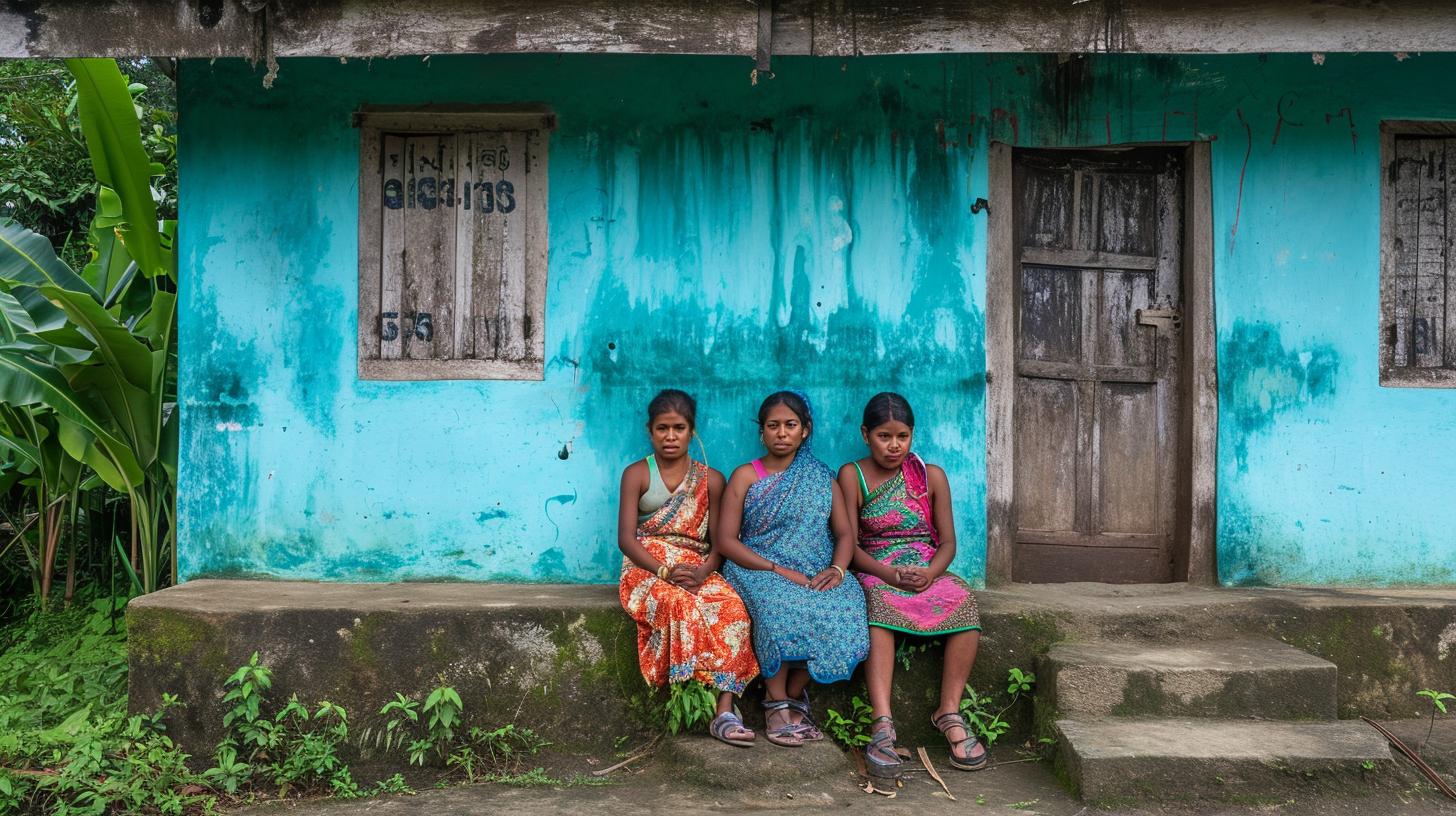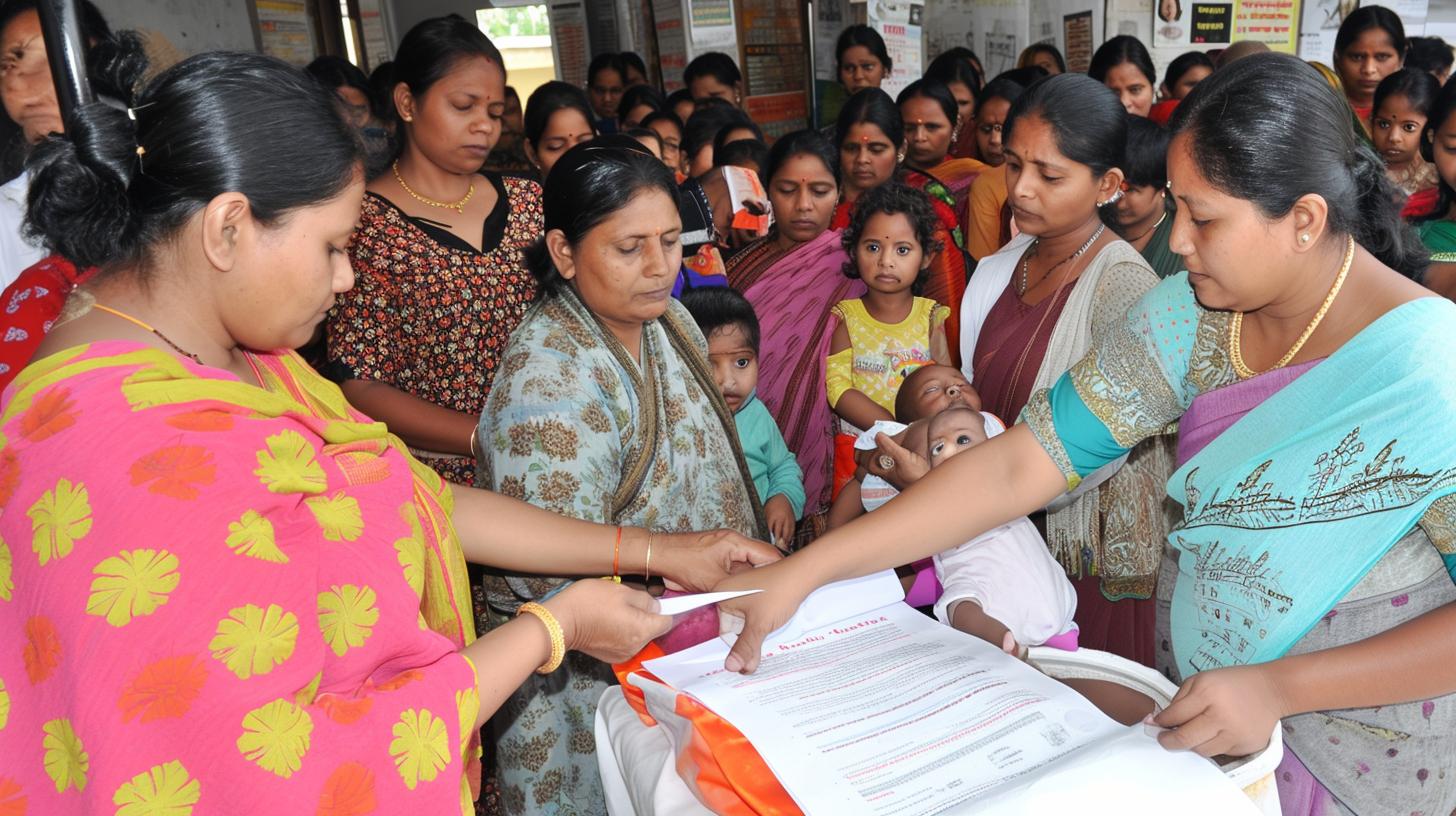
The Assamese health care system is a unique blend of traditional healing practices and modern medical interventions. Embedded in the rich cultural heritage of Assam, the health care practices in this northeastern state of India are deeply influenced by its tradition, environment, and socio-economic factors.
This article will provide an insightful overview of the current state of health care in Assam, including the traditional healing practices, challenges faced, initiatives and innovations, impact of traditional cuisine on health, access to healthcare services, and the future prospects.
Assam’s health care system is characterized by a deep-rooted connection to traditional healing practices that have been passed down through generations. These indigenous methods coexist with the modern healthcare facilities to cater to the diverse needs of the population. The influence of cultural beliefs and customs on health care decisions further adds to the distinctive nature of Assamese health care.
Despite its unique blend of tradition and modernity, Assam faces numerous challenges in providing adequate healthcare to its population. Limited access to healthcare services in remote areas, disparities in healthcare infrastructure between rural and urban areas, and barriers related to cultural beliefs are among the pressing issues that need attention. Additionally, there is a need for innovative solutions to improve public health outcomes and bridge the gap between traditional healing practices and modern medicine.
The journey through Assamese health care promises insights into opportunities for advancement while acknowledging obstacles that hinder progress. By addressing both traditional healing practices and contemporary medical interventions, this article seeks to provide a comprehensive understanding of this fascinating aspect of Assam’s culture.
Traditional Healing Practices in Assam
Assam has a rich history of traditional healing practices that have been passed down through generations. These practices often involve the use of natural remedies, such as herbal medicine and Ayurveda, to treat various health ailments. Traditional healers, known as “bez” or “ojha,” play a significant role in providing healthcare to rural communities in Assam where modern medical facilities may be scarce.
One common traditional healing practice in Assam is the use of medicinal plants. The state is home to a diverse range of flora with medicinal properties, which has led to the development of an extensive knowledge of plant-based remedies. Additionally, traditional healers also employ techniques such as massage therapy, meditation, and yoga to promote overall well-being and treat certain health conditions.
Despite the advancements in modern medicine, traditional healing practices continue to hold value among the people of Assam. Many individuals still seek the services of traditional healers alongside seeking treatment from conventional healthcare providers. This blending of traditional and modern healthcare reflects the cultural significance and deep-rooted traditions of Assamese society.
| Traditional Healing Practices | Impact |
|---|---|
| Use of medicinal plants | Provides natural remedies for various ailments |
| Massage therapy and yoga | Promotes overall well-being and treats specific health conditions |
Current Health Care System in Assam
The current health care system in Assam is a mix of government-run facilities, private hospitals, and traditional healing practices. The state has seen improvements in its health care infrastructure over the years, with a greater focus on providing quality medical services to its residents.
Public Health Care Facilities
Assam has a network of public health care facilities including primary health centers, community health centers, district hospitals, and medical colleges. These facilities provide essential health services to the population, including maternal and child health care, immunization, and treatment for common illnesses. However, these facilities often face challenges such as understaffing, inadequate infrastructure, and lack of essential medical supplies.
Private Health Care Sector
In recent years, there has been significant growth in the private health care sector in Assam. This includes the establishment of private hospitals, clinics, and diagnostic centers offering a wide range of medical services. While the private sector has contributed to improving access to advanced medical treatments and technologies in the state, it has also led to disparities in access to quality health care between urban and rural areas.
Integration of Traditional Healing Practices
The current health care system in Assam also integrates traditional healing practices such as Ayurveda, homeopathy, and folk medicine. Many people in Assam continue to rely on traditional healers for their health care needs due to cultural beliefs and accessibility issues. The challenge lies in ensuring that these traditional practices are regulated and integrated into the formal health care system to provide safe and effective treatment options for the population.
As Assam continues to navigate through various challenges within its health care system, there is a growing emphasis on addressing these issues through innovative approaches that take into account both modern medical practices and traditional healing methods. Efforts are being made to improve infrastructure, address staffing shortages, enhance the quality of services provided at public facilities while also promoting collaboration between public and private sectors towards achieving better overall healthcare outcomes for the people of Assam.
Challenges in Assamese Health Care
Assam faces several challenges in its healthcare system, mainly due to the lack of infrastructure and resources. Rural areas are particularly affected, with limited access to medical facilities, equipment, and qualified healthcare professionals. This scarcity often leads to delayed or inadequate treatment for many residents.
Another significant challenge is the prevalence of communicable diseases such as malaria, tuberculosis, and Japanese encephalitis. The state also grapples with high maternal and infant mortality rates. These health issues are compounded by factors such as poor sanitation, malnutrition, and limited awareness of preventive healthcare measures.
Furthermore, the diverse cultural and linguistic landscape of Assam presents a unique challenge for delivering effective healthcare services. The state is home to numerous indigenous communities, each with its own traditions and beliefs regarding health and illness. As a result, it can be challenging to provide culturally sensitive care that aligns with the specific needs and preferences of Assamese individuals.
| Healthcare Challenges | Data |
|---|---|
| Lack of infrastructure and resources | Rural areas are particularly affected. |
| Prevalence of communicable diseases | Malaria, tuberculosis, Japanese encephalitis |
| Diverse cultural landscape | Makes it challenging to provide culturally sensitive care. |
Initiatives and Innovations in Assamese Health Care
Amidst the challenges faced by the Assamese health care system, there have been remarkable initiatives and innovations that have aimed to improve the overall healthcare landscape in the region. These efforts have been crucial in addressing the unique health care needs of the communities in Assam.

Telemedicine and Mobile Health Units
One significant innovation in Assamese health care is the implementation of telemedicine and mobile health units. With Assam being a geographically diverse state with remote and inaccessible areas, these technological advancements have helped bridge the gap between healthcare providers and patients. Telemedicine has allowed patients to consult with specialists from urban centers without having to travel long distances, while mobile health units have reached underserved communities to provide essential healthcare services.
Community Health Workers
Another notable initiative in Assam’s health care system is the utilization of community health workers. These individuals, often from local communities, are trained to provide basic medical care, health education, and preventive services. They play a vital role in delivering essential health interventions, especially in rural areas where access to formal healthcare facilities may be limited.
Integration of Traditional Healing Practices
Recognizing the significance of traditional healing practices in Assam, there have been efforts to integrate these methods into the formal health care system. By incorporating traditional medicine into modern healthcare practices, there is a greater understanding and respect for cultural beliefs surrounding health and wellness. This integration not only preserves Assamese cultural heritage but also enhances access to holistic healthcare for the population.
These innovative approaches and initiatives reflect a commitment to improving Assamese health care by addressing accessibility, cultural relevance, and adaptability. While challenges persist, these efforts signal a promising direction for the future of health care in Assam.
Impact of Traditional Assamese Cuisine on Health
Assam, known for its rich cultural heritage and diverse traditions, also boasts a unique cuisine that has been a significant influence on the health of its people. The traditional Assamese diet, characterized by an abundance of rice, fish, and vegetables, has played a crucial role in shaping the health and well-being of the local population. The impact of traditional Assamese cuisine on health is significant and warrants exploration.
The traditional Assamese diet is primarily based on natural and locally sourced ingredients, which contribute to its overall health benefits. Here are some key aspects of traditional Assamese cuisine that have a positive impact on health:
- Emphasis on Rice: Rice is the staple food in Assam and provides essential carbohydrates for energy. It is also a good source of B vitamins and minerals.
- Consumption of Fish: Fish is a primary source of protein in the Assamese diet, providing essential nutrients such as omega-3 fatty acids that are beneficial for heart health.
- Inclusion of Vegetables: The use of various locally grown vegetables such as greens, gourds, and herbs adds fiber, vitamins, and antioxidants to the diet.
Moreover, traditional cooking methods such as steaming, boiling, and lightly spicing dishes with indigenous herbs contribute to the preservation of nutritional value in the food. Despite these positive aspects, there are also potential challenges related to modern influences on dietary habits in Assam, which may impact the overall health profile of its population. Understanding the impact of traditional Assamese cuisine on health is crucial for promoting overall well-being among the people in this region.

Access to Healthcare Services in Assam
- Geographical Barriers: The topography of Assam, with its vast plains and hilly terrains, poses a significant challenge for delivering healthcare services to remote areas. Many villages are located in difficult-to-reach locations, making it hard for healthcare providers to reach those in need.
- Infrastructure and Facilities: The lack of adequate healthcare infrastructure and facilities in many parts of Assam hinders access to medical services. Many rural areas lack well-equipped hospitals, clinics, and diagnostic centers, forcing residents to travel long distances for proper medical care.
- Socioeconomic Factors: Low socioeconomic status is a major barrier to accessing healthcare in Assam. Poverty, lack of education, and limited financial resources often prevent individuals from seeking timely medical treatment or preventive care.
Efforts are being made by the government and various organizations to address these challenges and improve access to healthcare services in Assam. Mobile health units, telemedicine initiatives, and community health worker programs have been implemented to bring essential medical assistance closer to underserved communities.
Despite the existing challenges, there is hope that ongoing initiatives and innovations will help bridge the gap in access to healthcare services across Assam, benefiting the entire population including those residing in remote areas or facing socioeconomic limitations.
Cultural Influences on Health Care in Assam
The cultural influences on health care in Assam play a significant role in shaping the health practices and beliefs of the people in the region. Assam is known for its diverse culture, which includes a rich history of traditional healing practices that have been passed down through generations. The cultural diversity of Assam has had a profound impact on the healthcare system, as it has influenced the way people seek medical treatment and maintain their overall well-being.
One important cultural influence on health care in Assam is the belief in traditional healing practices such as Ayurveda and traditional herbal medicine. Many people in Assam still rely on these ancient healing methods, which have been practiced for centuries and are deeply rooted in the local culture. These traditional practices often coexist with modern medical treatments, as people seek a balance between conventional and alternative healthcare options.
Furthermore, cultural rituals and customs also play a significant role in shaping health care practices in Assam. For example, certain dietary habits and food choices are influenced by cultural traditions, such as the consumption of indigenous fruits and vegetables unique to the region. Additionally, religious festivals and ceremonies often involve specific health-related rituals and practices that are believed to promote well-being. Overall, these cultural influences contribute to the holistic approach to health care that is prevalent in Assam.
Future of Assamese Health Care
In conclusion, the future of Assamese health care presents both opportunities and obstacles. As the traditional healing practices continue to coexist with modern medical interventions, there is a unique potential for integrating the best of both worlds to improve overall health outcomes in Assam. Initiatives and innovations in the Assamese health care system, such as telemedicine and community health outreach programs, are beginning to address the challenges of access to healthcare services in remote areas.
The impact of traditional Assamese cuisine on health presents an opportunity for promoting healthy eating habits and preventing lifestyle-related diseases. By preserving and promoting traditional food practices, there is a chance to enhance the overall well-being of the Assamese population. However, efforts must be made to address the cultural influences on health care in Assam in order to provide culturally sensitive and effective healthcare services that meet the diverse needs of the population.
Despite these opportunities, there are also significant obstacles that need to be addressed in order to ensure a positive future for Assamese health care. Challenges such as inadequate infrastructure, limited resources, and disparities in healthcare access continue to hinder progress in providing quality care for all individuals.
The need for better funding, improved education and training for healthcare professionals, and enhanced public health policies remains critical for advancing the future of Assamese health care. By acknowledging these challenges and seizing opportunities for improvement, it is possible to envision a future where Assamese health care meets the needs of its population effectively.






